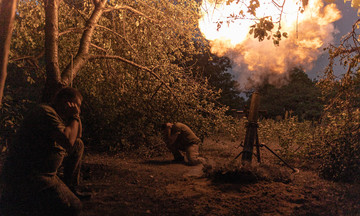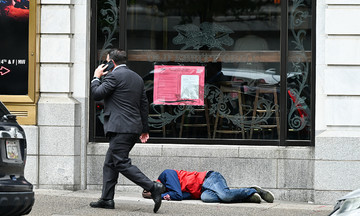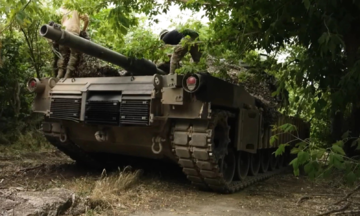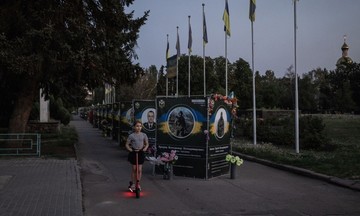After 5 days of intense fighting that left dozens dead on both sides, Thailand and Cambodia agreed on July 28th to a ceasefire starting at midnight on 29/7. The agreement was mediated by Malaysia, the current chair of ASEAN, with the support of the US and China.
Subsequent negotiations between the two countries' military delegations agreed that forces on both sides would maintain the status quo, with no further deployment or movement of troops or equipment to the border. The Malaysian army also announced the formation of two monitoring groups in Cambodia and Thailand to ensure the ceasefire is implemented.
However, experts point out that this ceasefire only freezes the conflict and forces both militaries to maintain the status quo. It does not address the root cause of the conflict: the long-standing border dispute between Cambodia and Thailand.
"The disagreement between Cambodia and Thailand has existed for a long time. That's why the ceasefire is quite fragile and needs third-party monitoring to ensure its implementation," said Professor Thitinan Pongsudhirak, a political scientist at Chulalongkorn University in Bangkok.
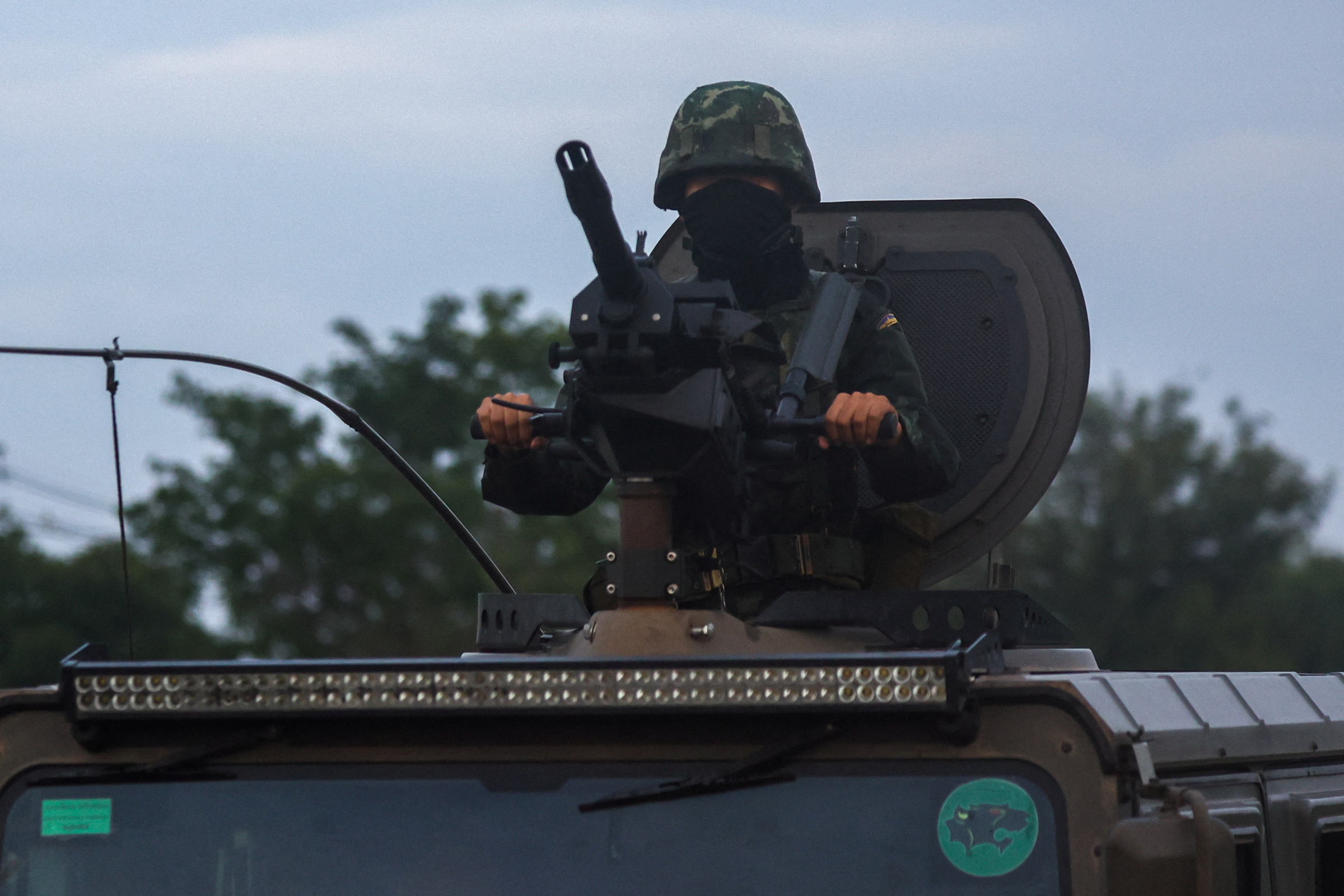 |
Thailand deploys armored vehicles to Buri Ram province on 25/7. Photo: AFP |
Thailand deploys armored vehicles to Buri Ram province on 25/7. Photo: AFP
For over a century, Thailand and Cambodia have disputed sovereignty over the area around the Preah Vihear temple and other religious sites along the border.
Clashes between Cambodia and Thailand erupted near the Ta Moan Thom temple on the morning of 24/7, then spread to other areas along the border. This was the most serious fighting between the two neighbors in over 10 years, resulting in at least 38 deaths and the forced displacement of about 300,000 people on both sides.
The question many are now asking is how the two neighbors will maintain the ceasefire in the face of numerous challenges.
Derek Grossman, a professor of political science and international relations at the University of Southern California, believes Thailand and Cambodia have strong motivation to adhere to the agreement. He explains that both countries want to avoid further loss of life and property, which could ignite political instability at home.
Neither side wants to face the threat of economic sanctions after US President Donald Trump declared he would not negotiate tariffs if the Cambodia-Thailand conflict continued. China, a major economic partner for both countries, also pushed for ceasefire negotiations.
Grossman added that history also shows that despite several clashes, the two neighbors have never allowed the border conflict to escalate into a major war.
However, observers warn that like most ceasefires in conflicts, the agreement between Thailand and Cambodia also faces challenges and the risk of collapse as the border dispute remains unresolved.
The Thai army today accused Cambodian forces of "opening fire, even using weapons like mortars," to attack Thai positions at several locations near the border in Si Sa Ket province. Cambodia denied the accusations.
This is the second time Thailand has claimed Cambodia violated the ceasefire in two days. Thai officials warned they "will decisively implement necessary measures to protect sovereignty and ensure the safety of Thai citizens if the violations continue."
Such accusations may continue to emerge in the coming days, testing the patience of both sides, as the disagreement over Preah Vihear temple and other disputed temples continues, according to Grossman.
Joanne Lin, a senior fellow at the ISEAS - Yusof Ishak Institute, believes the biggest risk to the ceasefire is mutual distrust and the possibility of misunderstandings in the disputed border areas.
Ilango Karuppannan, a retired Malaysian ambassador, agrees that fighting could erupt again simply due to the impulsive actions of a few individuals on the ground. "Sometimes, a soldier might just want to avenge the deaths of his friends," he said.
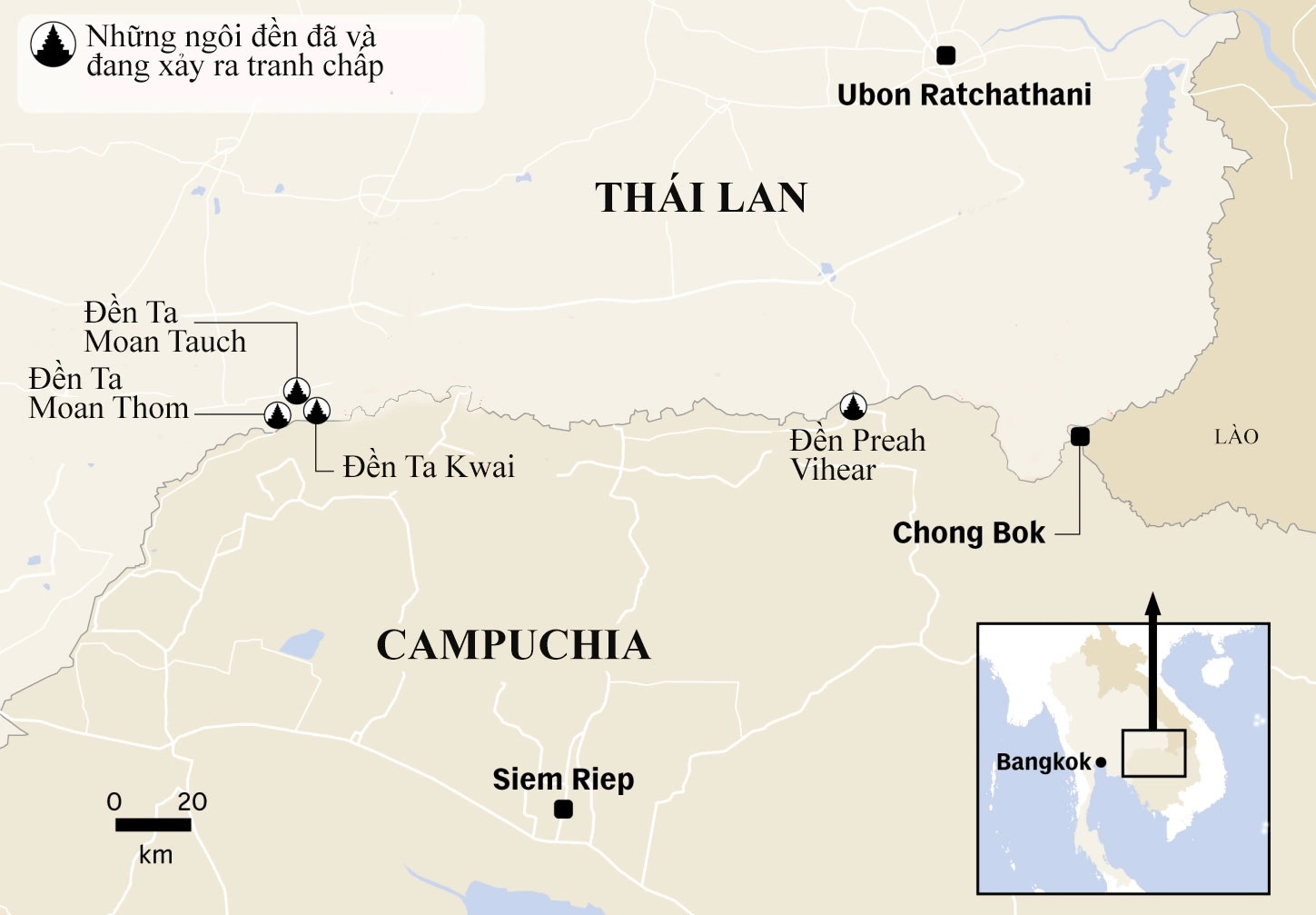 |
Locations of disputed temples between Cambodia and Thailand. Graphic: CNA |
Locations of disputed temples between Cambodia and Thailand. Graphic: CNA
Chong Ja Ian, an associate professor of political science at the National University of Singapore, also noted that the international community has not yet deployed any mechanism that can restrain the behavior of the two sides, except for the two monitoring groups that Malaysia is about to establish. "The atmosphere of tension, anger, and hostility remains high," he said.
Ou Virak, founder of the Cambodian consulting organization Future Forum, said the goal of any agreement must be to establish lasting peace between Cambodia and Thailand, rather than simply freezing the conflict.
"A ceasefire can be achieved quickly, but peace is not easy. The situation along the border area may continue to be unstable, and ensuring something lasting will take time," Virak said.
In addition to establishing ceasefire monitoring groups, some experts believe the two sides also need to take further steps to ensure a peaceful future for the border region.
"Both sides need to withdraw their troops to avoid escalation and create conditions for further negotiations to resolve the dispute," Chong said.
He added that ASEAN could play a more active role by sending observers to monitor the phased withdrawal of troops from the border, as well as providing transparent information to help Thailand and Cambodia avoid misunderstandings or miscalculations.
Malaysia could also promote further in-depth negotiations between Thailand and Cambodia, helping the two countries resolve their disagreements over the border issue and build a stable relationship, according to Chong.
Professor Grossman said it is important for Thailand and Cambodia to reach a border demarcation agreement, clearly defining the sovereignty of Preah Vihear temple and access to the site for citizens of each country.
"Otherwise, the two sides need to maintain regular consultations to ensure there are no misunderstandings or misperceptions about the disputed area, which could inadvertently lead to border tensions and even escalate the situation," he said.
Thuy Lam (From Foreign Policy, CNA, Nation)









